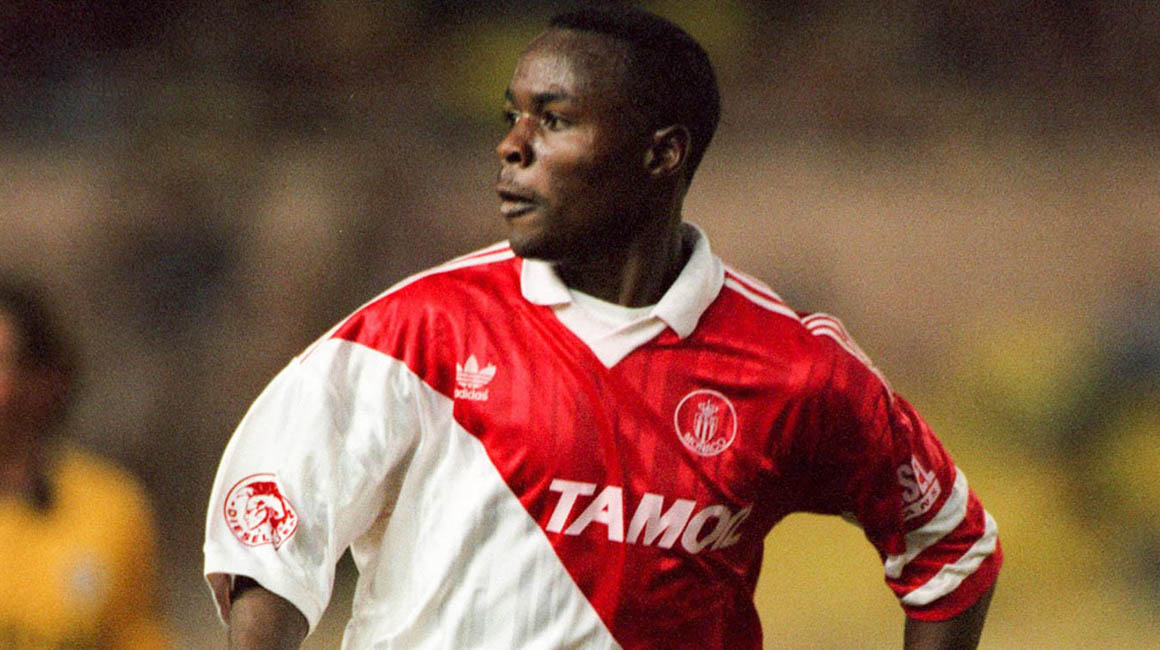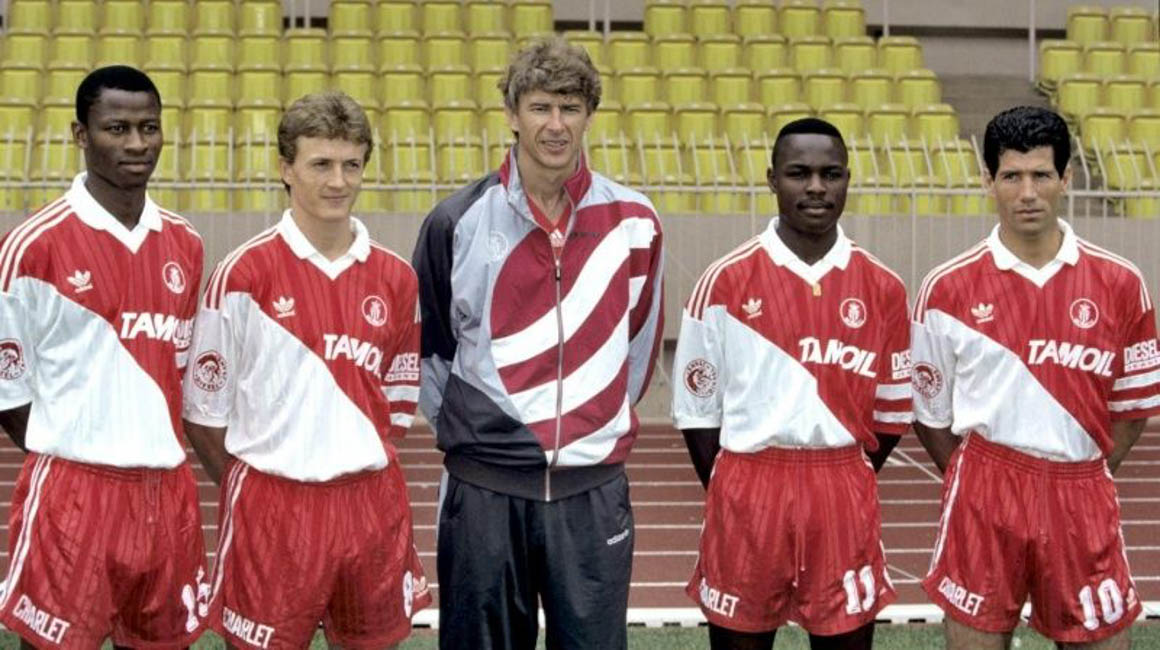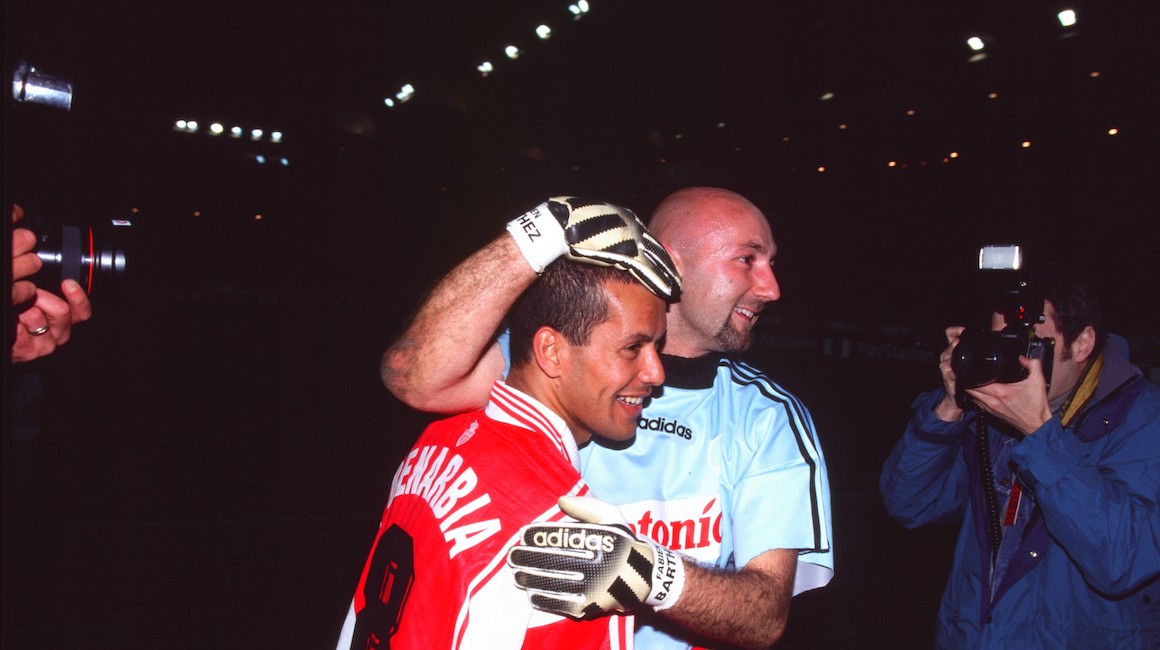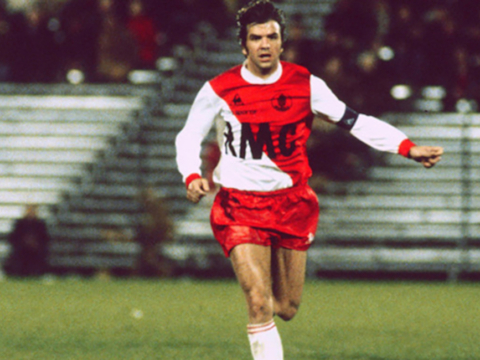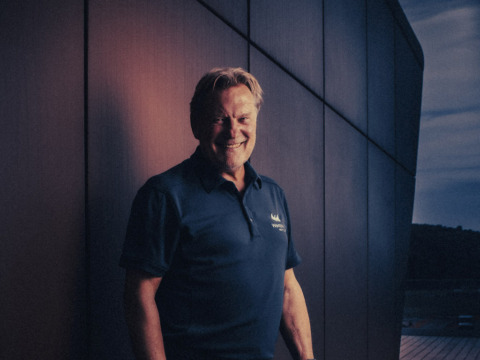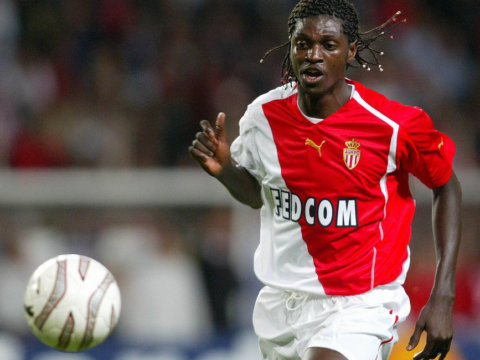Victor Ikpeba: "I'm sure someone will beat my record one day"
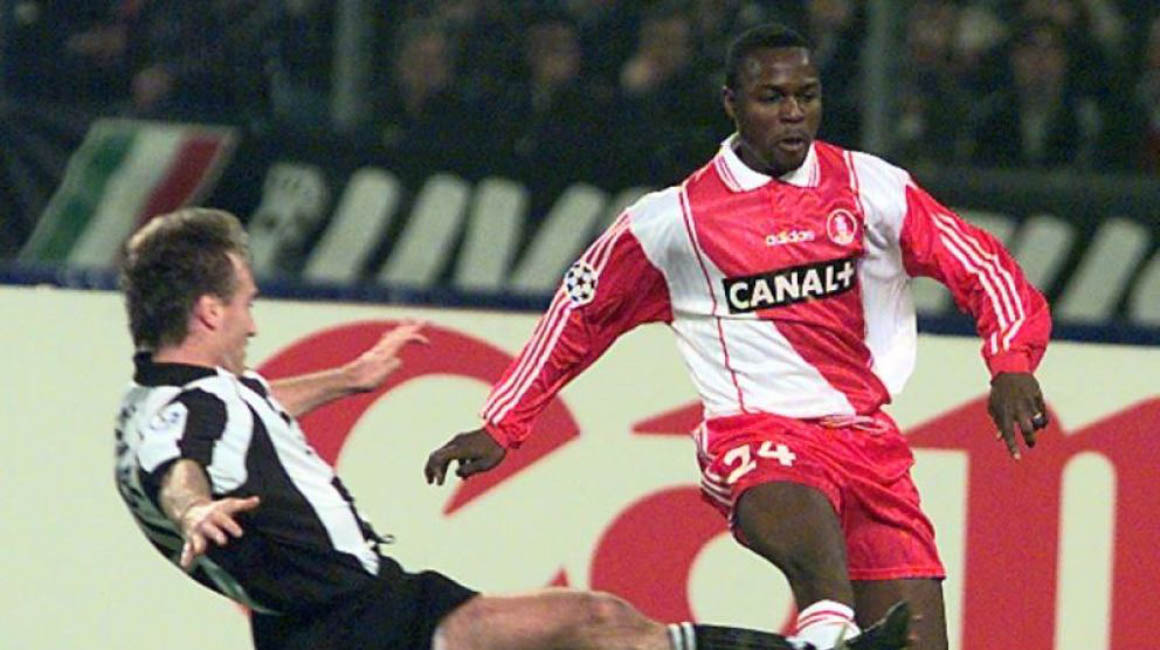
He was not tall in height (1.74 m), but through his performances he became one of the greatest strikers in the history of AS Monaco! Recruited in 1993 by Arsène Wenger, who believed in him a lot, Victor Ikpeba would imitate what George Weah did before him: be one of the best in his position. After becoming champion of France in 1997 under Jean Tigana, the season in which he was crowned African player of the year, he is still today the Club’s top scorer in European competitions (14 goals), and its fifth-top scorer in history (218 games, 76 goals). As we celebrate 200 matches for the Rouge et Blanc in Europe, we look back at a successful period in time with the Monegasque legend.
Hello Victor. Before starting this interview, how are you and what are you doing now?
I now live in Lagos, the capital of Nigeria. I am currently a consultant for the SuperSport television channel, the equivalent of Canal + or Sky in Europe, where I have been working for several years now. It’s the biggest media outlet here in Africa. I am also a member of the technical committee for the Nigerian Football Association, where I have been involved in football development for 11 years.
Looking back, what does AS Monaco represent for you?
My history with AS Monaco is a very rich one. It’s the place that allowed me to play at the highest level of football in Europe, to play in Ligue 1. It was an honor for me, coming from Belgium. Taking this decision changed my life. It was not easy, I had to work hard and I had some ups and downs at the start. But I it was a real pleasure to play here, being elected African player of the year in 1997, and winning the French title the same year, as well as becoming an Olympic champion with Nigeria in 1996.
In six seasons here I accomplished a lot with this club, with whom I reached three European semifinals, two of them in the Champions League. We had a great team, and it was very special for me. And people remember me for my time at AS Monaco. So I’m really grateful to the Club for giving me the opportunity to play at such a high level, especially under Arsène Wenger. I left some really good friends when I left too, so it wasn’t easy. Looking back, Monaco means a lot to me.
You were recruited by Arsène Wenger in 1993. What was your relationship with him and how did it change in your career?
I think it’s really important to have a manager who believes in you. I was at a very modest club in Belgium, RFC Liège. So I want to thank Arsène for believing in my qualities to the point of bringing me to Monaco. He saw that I had the potential to play for this great club, and for that, I will be eternally grateful to him. I met him again in 2008 when France played a friendly match against Nigeria in Lyon. I spoke with him and told him that I was in awe of everything he did next with Arsenal. And I also thanked him for what he has done for a number of African players. He was a great believer in African football and he helped develop many young players at the highest level, when they were just kids at the start.
Klinsmann, Anderson, Djorkaeff, Henry, Trezeguet… how did you manage to find a place in these teams?
I had to fight for it (laughs)! That’ss a joke, but honestly it was difficult, it took character and above all belief in myself. I had some difficult times, but they never took away my will and I always took the chances that were given to me. Six years in Monaco, I can tell you that it is not easy when you are fighting for a place with the best players in their position, but that’s how it was back then. There were indeed exceptional players at my post: Jürgen Klinsmann, Amara Simba, Youri Djorkaeff, Sonny Anderson and Thierry Henry who was coming out of the Academy. The competition was tough, and I think that pushed me to get better and achieve big goals.
In terms of managers, you also worked under Jean Tigana, who took you to a higher level…
I think Jean Tigana knew my potential, but wanted me to be more consistent in my performances. He was a young manager and certainly Arsene Wenger had more experience at the tactical level. But he came with the idea of instilling a competitive spirit in the group. At first I didn’t play a lot, but when I came back from the Olympics, which was a big boost in my career, my status changed. He gave me more opportunities to prove myself.
I showed him that he could count on me, let alone my talent or my qualities. Sometimes you need to fight to prove that you deserve your chance. In any case, I had the pleasure of meeting him two years ago in Lagos, and we talked a lot. We kept a lot of respect for each other, even after I left Monaco. I think he really managed to push my limits and get the best of me. And it was when he was on the bench that I accomplished the most.
Looking back, what is the best moment of your six years in Monaco?
The 1996-1997 and 1997-1998 seasons were exceptional for me. I was in the form of my life I think. To score 40 goals in two years at the time, you had to be pretty skilled. In 1993-1994 I also scored my first Champions League goal, so it was special, even though I was still learning at the highest level. So I really think between 1996 and 1998, I had my best seasons.
Precisely, which is the one that has marked you the most?
Instinctively, I think of the one I scored at San Siro against Inter Milan in the UEFA Cup semi-final. I’ve thought of others that I really liked, but this one is still being talked about today. Another? I scored a bunch of incredible goals (laughs)! I especially remember one against the Belgian club Lierse in the Champions League. It was froma corner. But it’s always difficult to pick one out over the other.
Which European match do you remember the most?
I think it’s really that game against Inter Milan. Especially since I had not started the game, so I was not happy (smiles). I came in and scored. There is also the match against Spartak Moscow in 1993 where I came on and I scored a goal with Prince Rainier watching. It was really a special moment for me, because it was my first goal in the Champions League group stage. I was only 20 years old.
https://www.youtube.com/watch?v=UGSIhuEOw84
Finally, tell us the story of your nickname, “Prince of Monaco” …
It’s a long story (smile). When I was in Monaco, I was close to Prince Albert II. This nickname came to me from a Nigerian journalist who came to interview me in the Principality after my title of African player of the year in 1997. Showing him the city and the lifestyle, I told him that I was living like a prince here. And this is where he decided to headline his report in the magazine: “Victor Ikpeba, the Prince of Monaco”. The legend started from there.
